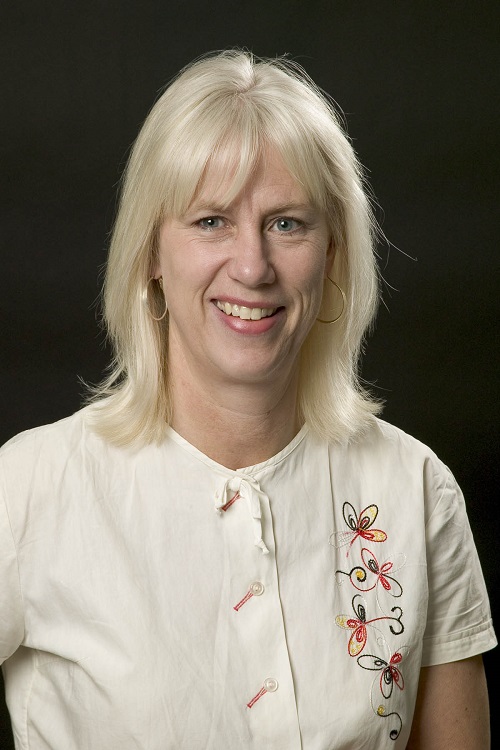TTUHSC’s Cornwall Elected Fellow by American Association for the Advancement of Science

American Association for the Advancement of Science
Gail Cornwall, Ph.D., a professor in the Department of Cell Biology and Biochemistry at the Texas Tech University Health Sciences Center (TTUHSC), has focused her nearly 30-year career on studying male reproduction. In recognition of those contributions, Cornwall has been named a member of the American Association for the Advancement of Science (AAAS) Fellowship Class of 2022.
The honor is based upon the nominee’s scientifically or socially distinguished efforts to advance science or its applications. AAAS Fellows are nominated by their peers, and nominees deemed by the AAAS council to be scientifically distinguished are then elected to receive the grade of fellow. Cornwall will be recognized in the spring at the AAAS annual Fellows Forum in Washington, DC.
Though Cornwall has been an AAAS member for more than 25 years, being nominated for the AAAS Fellowship came as a complete surprise. She was initially nominated last spring by a scientist she’s never met who serves on one of the AAAS committees. Cornwall said her nominator wanted to bring recognition to scientists who have met the qualifications for becoming an AAAS Fellow, especially those who have demonstrated career excellence by advancing science in their subspecialty and who have developed stellar reputations within the research community while working for smaller institutions.

Gail Cornwall, Ph.D.
“That's exactly why it's a big deal to me,” Cornwall said. “It is a peer review from
people who don't even know me personally but recognize the research my lab is doing
as significant. Science is a large part of my life; I love the thrill of discovery
and want to contribute to the scientific community in a meaningful way. My lab is
very serious about the work that we do and it's starting to be recognized by a broader
community than in the past.”
Cornwall was classically trained as a reproduction biologist and has a 25-year history
of studying male reproduction, specifically sperm maturation, that dates back to her
days as a graduate student at Johns Hopkins University. Over the last 10-12 years,
her lab has been investigating functional amyloids, which are structures typically
associated with Alzheimer's disease but also are found in the male reproductive system.
“Amyloids are the sticky aggregates that can form in your brain and my lab was the first to show that they can be functional structures that carry out normal biological roles in the reproductive tract,” Cornwall explained. “In fact, our work was one of the earliest pieces of evidence that these structures existed in mammals. Although functional amyloids were known to be in bacteria and yeast, everyone thought that in mammals they only caused disease.”
Cornwall’s lab showed that amyloids are present in germ cell structures that are necessary for fertilization while in separate studies showed that functional amyloids produced by the epididymis surround the maturing sperm to protect them from pathogens.
“In addition to studying amyloids in reproduction, we think there may be similar functional amyloid structures in the brain, which has implications for neurodegeneration, so we are starting to move in that direction,” Cornwall stated. “While we think some cases of neurodegenerative disease including those of Alzheimer’s disease might be a result of functional amyloids that have gone awry, we have a long way to go before proving it.”
Cornwall’s lab also is investigating the process by which amyloids assemble. This information could help researchers understand how these proteins aggregate, and why some amyloids can kill brain neurons, while other amyloids carry out normal functions. For these studies, Cornwall said her lab is collaborating with Bryan Sutton Ph.D., from TTUHSC, Ben Wylie, Ph.D., from Texas Tech University and Mike Latham, Ph.D., from the University of Minnesota to investigate amyloids at the atomic level using X-ray crystallography and solution-state and solid-state nuclear magnetic resonance (NMR) spectroscopy.
“Our collaboration has already resulted in three publications including one in PNAS (Proceedings of the National Academy of Sciences) showing that a single protein can use different assembly pathways to form amyloid,” Cornwall added. “We are now trying to figure out why.”
They also are studying how amyloids might actually be a new mechanism of inheritance, or a trait one could inherit due to the transmission of the amyloid structure through the germline, a high risk/high reward project currently funded by the John Templeton Foundation.
“We're basically attacking this from multiple angles,” Cornwall continued. “We want to know why nature has kept the amyloid fold throughout evolution so we use mouse models and cell culture models to study what the structures do. I am really lucky to have great people to work with in my lab at TTUHSC, including senior scientists Aveline Hewetson, Ph.D., and Uyen Tran, Ph.D.; graduate students Alejandra Gomez and Caitlyn Myers; and undergraduate research assistants, Ricky Martinez and Luke Bierwagen. They listen to my crazy ideas.”
These new investigations have opened the door into a new area of research for Cornwall. In fact, she believes her nomination as an AAAS Fellow was due to her lab’s classic and pioneering work in sperm maturation, and her selection was then cemented by the novelty and direction of her latest research projects.
“I think that probably was part of the recognition: the fact that we discovered these amyloids in the male germline,” Cornwall said. “Either way, I'm just really honored to be recognized by the outside scientific community — outside of Lubbock, outside of Texas Tech — and in the big world of science across all disciplines. They recognize that what we're doing is significant, and that's very meaningful for me.”
Related Stories
TTUHSC Cancer Researcher Honored by National Academy of Inventors
C. Patrick Reynolds, M.D., Ph.D., director of the School of Medicine Pediatric Cancer Research Center at TTUHSC, has dedicated his life as a researcher to developing treatments for childhood cancers.
TTUHSC’s Hudson Set to Serve as President for Society of Clinical Research Associates
The Society of Clinical Research Associates (SOCRA) has elected Texas Tech University Health Sciences Center’s (TTUHSC) Catherine Hudson, Dr.P.H., as its president for 2025-2026.
Clinical Research Institute a Source of Pride for Retiring Griswold
Upon his retirement, John Griswold, M.D., reflects on the Clinical Research Institute and what it has achieved.
Recent Stories
The John Wayne Cancer Foundation Surgical Oncology Fellowship Program at Texas Tech University Health Sciences Center Announced
TTUHSC is collaborating with the John Wayne Cancer Foundation and has established the Big Cure Endowment, which supports the university’s efforts to reduce cancer incidence and increase survivability of people in rural and underserved areas.
TTUHSC Receives $1 Million Gift from Amarillo National Bank to Expand and Enhance Pediatric Care in the Panhandle
TTUHSC School of Medicine leaders accepted a $1 million philanthropic gift from Amarillo National Bank on Tuesday (Feb. 10), marking a transformational investment in pediatric care for the Texas Panhandle.
Texas Tech University Health Sciences Center Permian Basin Announces Pediatric Residency Program Gift
TTUHSC Permian Basin, along with the Permian Strategic Partnership and the Scharbauer Foundation, Feb. 5 announced a gift that will fund a new pediatric residency.
